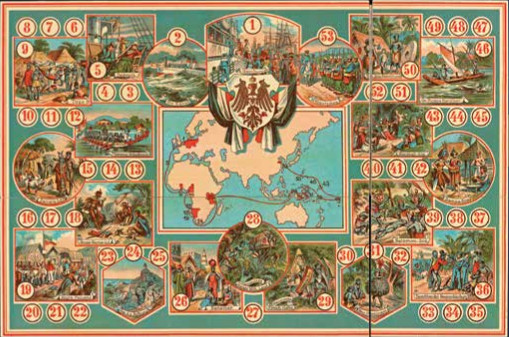Over the holidays, I visited my family and played a board game called Freedom: The Underground Railroad, that simulated abolitionists helping enslaved people to escape to Canada from plantations in the South. I have mixed feelings about the game. I liked that it was a collaborative game, and in many ways provided a richer, more nuanced context for the abolitionism and the underground railroad than what I learned in grade school. At the same time, with players playing as abolitionists, the game felt like it reinforced a savior mentality and tended to minimize the agency of enslaved people and push the horror of slavery and the experience of the enslaved to the background in the game’s historical narrative. Still, it felt refreshing to play a historical game that wasn’t centered around war, resource exploitation, or colonialism.
When I first started playing contemporary strategy board games for adults, I was struck by how many games had an uncritical colonial narrative. On a recent trip to LA, I went to an exhibit titled Connecting Seas at the Getty and some of the media in the exhibition made me think that there might be a historical precedence for such colonial games.
Below is a board game from the early 1900s, used to promote Germany’s colonial exploits, that was featured in the exhibit. I wasn’t able to find an image of the game’s cover, but it featured an illustration of a German soldier or sailor surrounded by racist architectures of Africans.

Los Angeles, Getty Research Institute.
Like any media, games have been and are used to promote normative political or cultural practices of values. Are there any games that reflect a more critical framing of colonialism in history, or a more critical speculative colonial narrative?